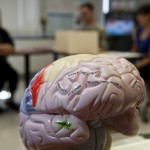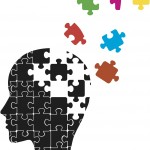
Lucas Shelemy on a recent randomised longitudinal study that explores the effect of antidepressant treatment on cognitive impairments associated with depression.
[read the full story...]
Lucas Shelemy on a recent randomised longitudinal study that explores the effect of antidepressant treatment on cognitive impairments associated with depression.
[read the full story...]
Eleanor Kennedy summarises a recent Cochrane review of pharmacotherapy for chronic cognitive impairment in traumatic brain injury, which finds insufficient evidence to support its use.
[read the full story...]
Farhana Mann appraises a cross-sectional survey of social networking site usage, loneliness and mental health in community-dwelling older adults.
[read the full story...]
In her first blog for the Social Care Elf, Caroline Struthers looks at research on cognitive impairment and shared decision making for people with dementia and offers useful tips on understanding research reviews. She also shares some of her own personal experience of the research topic and reminds us about reliable evidence having real-life applications.
[read the full story...]
Falls are estimated to cost the NHS more than £2.3 billion per year (College of Optometrists, 2011) and are associated with significant morbidity and mortality. This fact alone should be giving us the drive to look for ways to prevent falls in healthcare settings. A systematic review recently published in BMC Nursing (Bunn et al, 2014) is [read the full story…]

The symptoms of mild cognitive impairment (MCI) include problems with cognitive functioning such as day-to-day memory. In some individuals it is the first sign of dementia, whereas in others it may be due to resolvable factors such as being the side-effect of medication (Alzheimer’s Society, 2012). At present it is unclear how many people with [read the full story…]

Some days even the most committed of Elves can be a little reluctant to return to work in the woodland. What must it be like though to feel like that every day? Apathy (diminished motivation, lack of emotion, interest or concern) is thought to be a frequent complication of stroke associated with poorer outcomes, but [read the full story…]